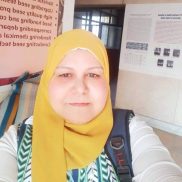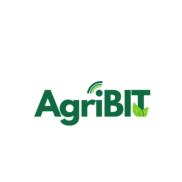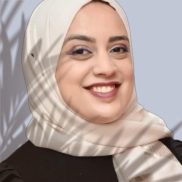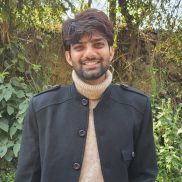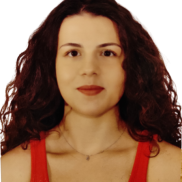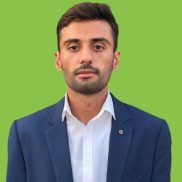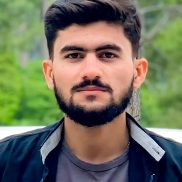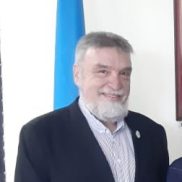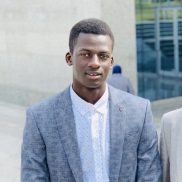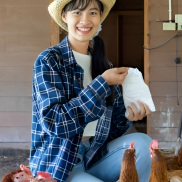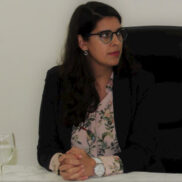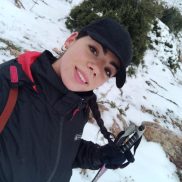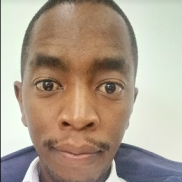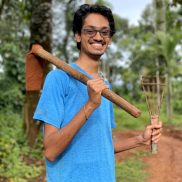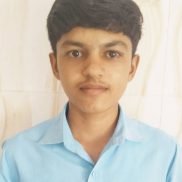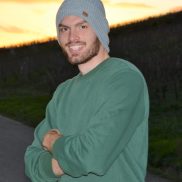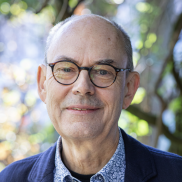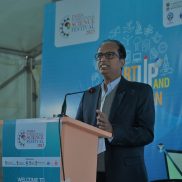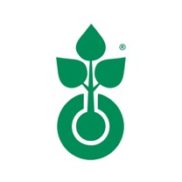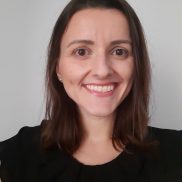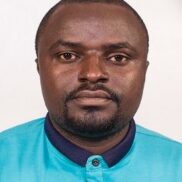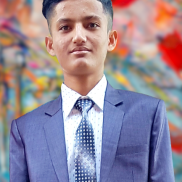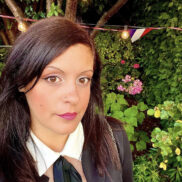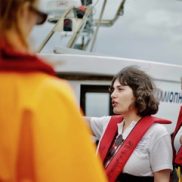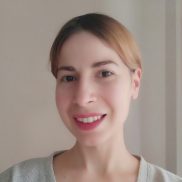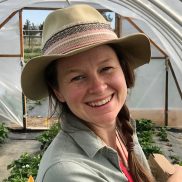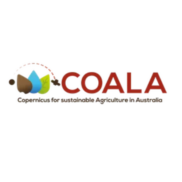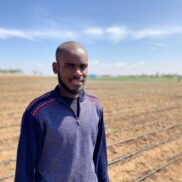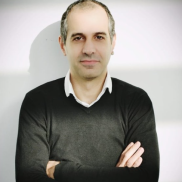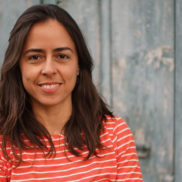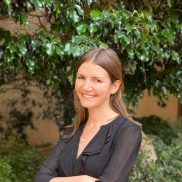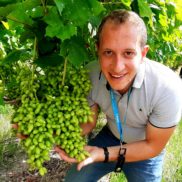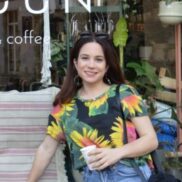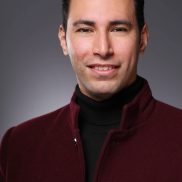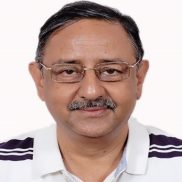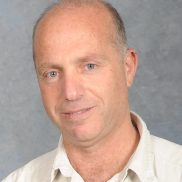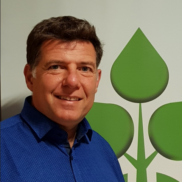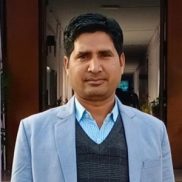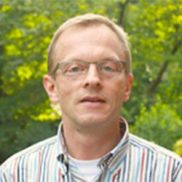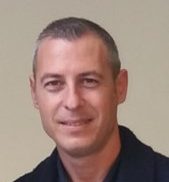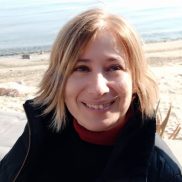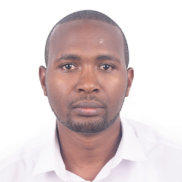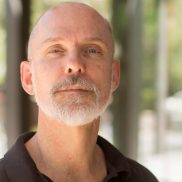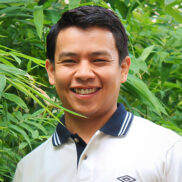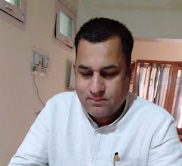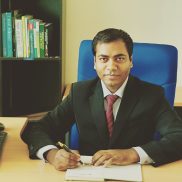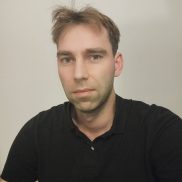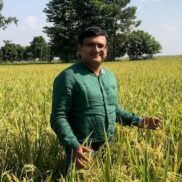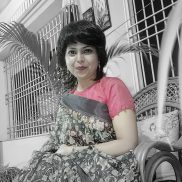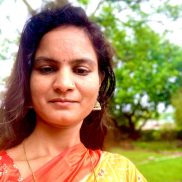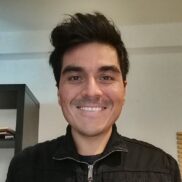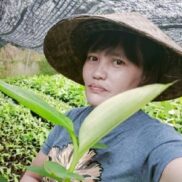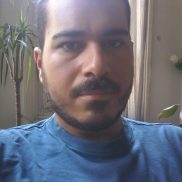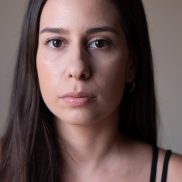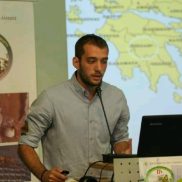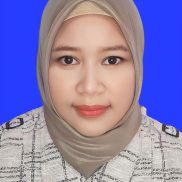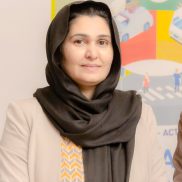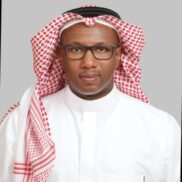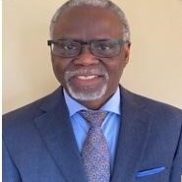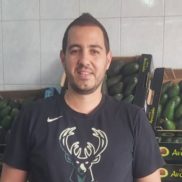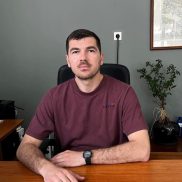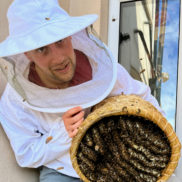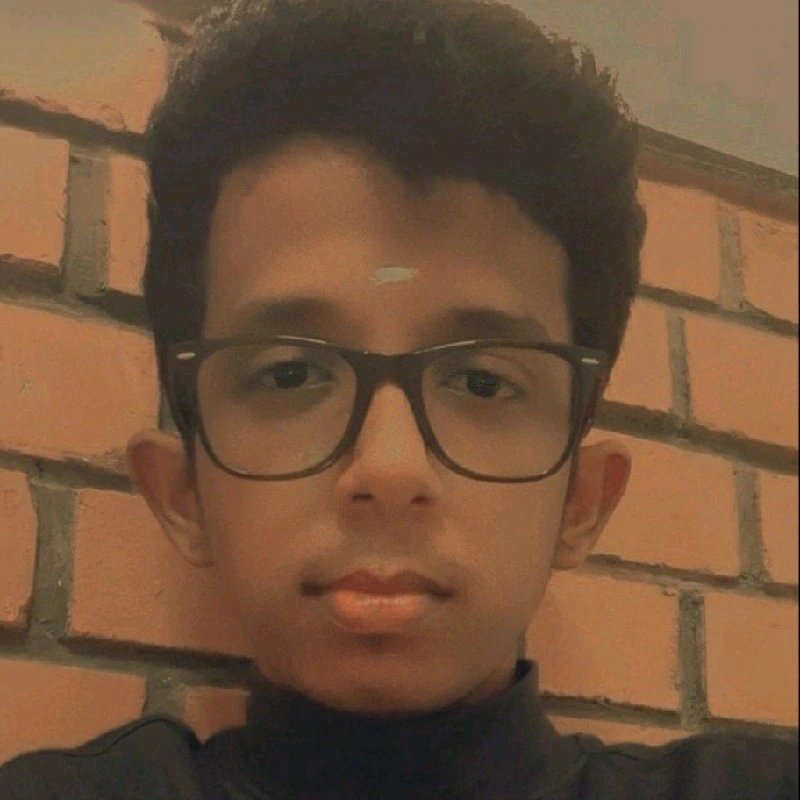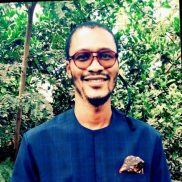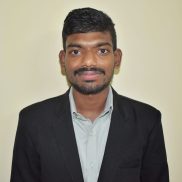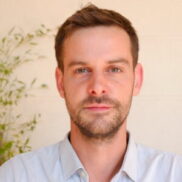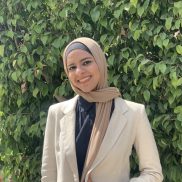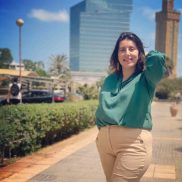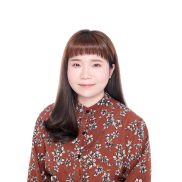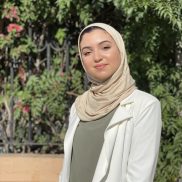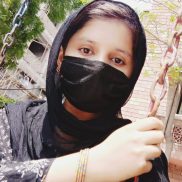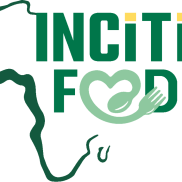Unfortunately something went wrong, please reload the page and try again.
Our Authors
Abdul Manan
Agricultural Engineer
Verified
I am a dedicated professional with a strong background in Agricultural Engineering, deeply passionate about Precision Agriculture and its potential to revolutionize the industry. My expertise in automation, robotics, and machine learning, combined with a deep understanding of farming operations, allows me to develop data-driven solutions that optimize resource usage and increase productivity. My aim is to contribute to the advancement of the agricultural industry and foster innovation in this field. I have experienced in areas such as GIS, remote sensing, and precision farming tools, and I'm committed to helping farmers make data-driven decisions for better yields and sustainability. I'm continuously eager to learn and grow in my profession, driven by the goal of making a positive impact on the farming community.
Abeer Abdelaty
Researcher at the Field Crops Research Institute, Seed Technology Research Department, Egypt
Verified
Abeer Abdelaty Ahmed is working at Agriculture Research Center, Field Crops Research Institute, Seed Technology Research Department, Egypt. She holds a Doctorate degree in Agriculture science. Her areas of expertise include Field Crop Production, Seed Production and Technology, Post-harvest, Plant Genetic Resources and Data analysis. Abeer actively engages in training researchers and consulting farmers and entrepreneurs. She actively contributes his knowledge to impactful in many agriculture research projects collaborating with relevant institutions. Patented about new compounds for improving plant growth and increase productivity. Participated in many international conferences and workshops.
AgriBIT
Research Project
Verified
AgriBIT boasts a diverse team encompassing GNSS, ICT, and agricultural solution providers, alongside agriculture users, farmer associations, and cooperatives. The consortium unites 8 partners from 4 European countries (Italy, Greece, Ireland, and Portugal) dedicated to enhancing the agricultural chain. Their mission is to provide Precision Agriculture services that are consistently available, highly precise, and remarkably accurate. AgriBIT's primary goal is to deliver a comprehensive array of customizable and modular solutions tailored to different agricultural applications and crop brands.
Ahlem Limem
Agriculture and Rural Development Professional
Verified
I am Ahlem Limem, a consultant in agriculture and rural development, graduated from High-school of agriculture at Carthage University in Tunisia. I am passionate about supporting sustainable and equitable development in the agriculture sector.Drawing on my experience in enhancing the performance and sustainability of cooperatives, I am deeply committed to the cooperative movement and its potential to drive positive change in the agricultural sector.In my prior positions, I played an active role in agricultural and rural development initiatives, with a particular emphasis on empowering women and youth, assisting agri-entrepreneurs and small and medium-sized enterprises, analyzing agricultural value chains, and conducting monitoring and evaluation activities.
Akashdeep Singh
Ph.D. (Scholar), Department of Agronomy, CSK Himachal Pradesh Agricultural University, Palampur, India
Verified
Akashdeep Singh, born in Dharmashala, India in 1995, completed his Bachelor’s and Master’s degrees in Agriculture and Agronomy in 2018 and 2020, respectively. His early research focused on crop diversification and its impact on soil fertility. He is currently pursuing his doctoral degree at CSK Himachal Pradesh Agricultural University, Palampur, India. His research delves into crop establishment methods, conservation agriculture, and biofortification, particularly examining their effects on soil health within the rice-wheat cropping system.
Alexandra Petrokolou
Undergraduate student - Food Technologist
Verified
Alexandra Petrokolou is an undergraduate student at the Department of Food Science and Technology of the University of West Attica. She is particularly interested in the trends that are emerging in the food industry and wants to learn more alongside experienced scientists. In particular, she has basic knowledge on food quality and safety systems and likes to learn about food product development in combination with sustainability.
Ali Hassan
Expert in agriculture and business
Verified
Meet Hassan Ali, a dynamic professional with expertise in both agriculture and business. With an MBA from the University of Agriculture Faisalabad, Hassan seamlessly integrates the complexities of agriculture with international business dynamics. Having pursued studies in International Business and Sales Management, Hassan now plays a pivotal role in the tech-driven agriculture landscape. Currently working for an innovative IoT company, he leads the sales efforts for wireless temperature sensors tailored for the agriculture industry. Beyond his professional pursuits, Hassan harbors a deep passion for agriculture and sustainability. His commitment extends beyond business, reflecting a genuine dedication to the well-being of our planet. In his role, Hassan envisions and actively contributes to a greener, more efficient future in farming, showcasing a harmonious fusion of academic prowess, international acumen, and a sincere commitment to making a positive impact in the world of agriculture.
Ali Hassan
Student at University of Agriculture Faisalabad
Verified
Ali Hassan, a 22-year-old Pakistani national with a passion for sustainable agriculture, is currently pursuing his BSc (Hons) in Agriculture Sciences at the University of Agriculture Faisalabad. He possesses strong English language skills and digital proficiency, as evidenced by his participation in webinars and online publications. Ali's research interests lie in exploring the impact of climate change on agriculture and finding solutions through sustainable farming practices. His recent projects include investigating the effects of water stress, fertilization, and sowing methods on various crops. Beyond academics, Ali enjoys creative writing, photography, and various sports.
Alon Haberfeld
Αgriculture expert
Verified
Dr. Alon Haberfeld is an agriculture expert with 30 years of experience in industry and academia. He has a PhD in Genetics and Molecular Biology and an MBA in Integrated Management, both from the Hebrew University of Jerusalem. Dr. Haberfeld held a research scientist position at the Agricultural Research Organization - Volcani Institute, Israel's national agricultural R&D center. He worked for 15 years at Hazera Genetic, Israel’s leading seed company, a member of the French Limagrain group of seed companies. Dr. Haberfeld is currently the CEO of Fair Planet, an Israeli NGO, capacitating smallholder farmers in Africa, and is a consultant to several agriculture ventures.
Amadou Moctar Fall
Agricultural Engineer
Verified
Mr. Amadou Moctar Fall is an agricultural engineer specialized in Sciences and Techniques of Plant Production. He has expertise in Plant & Soil Science, Crop Nutrition and Irrigation management.
Amelia Quinn
Poultry (chicken) specialist - Content Creator
Verified
I'm Amelia Quinn, and I'm delighted to introduce myself to this wonderful community. I grew up on a humble little farm where raising animals and cultivating vegetables were not just chores, but a way of life. Our livelihood depended on the fruits of the land and the care we provided to our animals. After school each day, I took on the role of helping care for my younger siblings and tending to our animals. Raising chickens and nurturing crops became an integral part of my daily routine。Now, as I embark on this journey of connecting with fellow farmers and enthusiasts, I am excited to share my experiences and learn from the wisdom of other experienced individuals in the farming community. Let's grow together, both in knowledge and as a community. https://chickenraising101.com/
Andreia Fausto
Head of Programme at World Food Programme
Verified
Andreia Fausto has over 7 years of professional experience in food security and nutrition, focused food systems and all the value chain. She has also great experience in country strategic planning and program implementation on food fortification, SBCC, market access and advocacy on food security and other rural development areas. Additionally, Andreia has experience in stakeholder engagement including a heavy focus on private and public sector involvement in development efforts. She holds a degree in veterinary medicine and currently works at world food programme (WFP) in central Africa.
Anna Ioannidi
Biologist with a focus on mycology
Verified
Anna Ioannidi is a passionate biologist with a focus on environmental biology, particularly in the field of mycology. She earned her Master's degree from Cardiff University and has since dedicated the past six years to studying soil science and plant-soil interactions. Anna has conducted extensive experiments on the field, exploring the effects of soil enhancers and the benefits of mycorrhizal fungi. Her interests lie in sharing her knowledge of soil health with farmers around the world. Currently, Anna works as a Scientific Advisor at a fertilizer company, where she applies her expertise in beneficial soil microorganisms to provide valuable insights and recommendations.
Antony Kamuti
Agronomist specialized in Industrial Microbiology and Biotechnology and Content writer
Verified
Antony holds a degree in Industrial Microbiology and Biotechnology from the Technical University of Mombasa. Since 2016, he has worked with leading fruit processing companies in Kenya, dealing directly with farmers, and extracting raw fruits (Mangoes, Pineapples, Yellow Passion, Oranges, and Tomatoes) into purees and concentrates. He is also a content writer passionate about impacting people's lives with value-adding information and an experienced manufacturing professional with a demonstrated history working in the fruit processing sector. He is a self-motivated, lifelong learner with increasing curiosity and determination to achieve self-development and positively impact lives.
Arkesh Shenoy
Agronomist - Co-founder of Prakheti Agrologics
Verified
Arkesh Kedar Shenoy is a graduate in Agriculture, with an unwavering passion for agroecology and agrobiodiversity. As the co-founder of Prakheti Agrologics, Arkesh leads projects in sustainable agricultural systems and environmental services. His primary focus is on promoting native agrobiodiversity, and he has established an impressive seed bank that houses over 400 varieties of native and heirloom crop species. During his internship at esteemed institutes like the M.S. Swaminathan Research Foundation, he actively contributed to the conservation of traditional crop varieties and valuable wild forest species. An active member of the International Association of Students in Agricultural and Related Sciences (IAAS), Arkesh serves as the Coordinator of Projects for the Asia-Pacific Region. Through this role, he collaborates with individuals worldwide, inspiring a global movement toward sustainable agriculture and environmental stewardship. He has conducted numerous treewalks and workshops on microgreen culture, butterfly conservation, botanical specimen preservation, seed saving, and home gardening. Apart from his professional endeavors, Arkesh holds expertise in crafting terrariums. His self-sustaining ecospheres boast wild themes and feature native flora and captivating landscapes. His wide-ranging interests also include botanical and soil pigments, gastronomy, and nature photography.
Ashish Marand
Farmer and Agriculture writer
Verified
My background provides a broad overview of vegetable farming, emphasizing its important role in supplying fresh and healthy food. I am a farmer's son, and currently my occupation is also agriculture. I am passionate about creating articles and blogs related to agri-food topics and help fellow farmers access knowledge. I also have a blogging website. https://www.agriculturelandusa.com/
Athanasios Parisakis
Agronomist
Verified
I am an undergraduate student in the Department of Agriculture Crop Production and Rural Environment - University of Thessaly. Currently, I'm specializing in entomology and I am working on my thesis in the Insect Biology Lab. Additionally, I own an insect-related YouTube channel: Entomozoom. Youtube channel: https://www.youtube.com/@Entomozoom
Axel Anders
Co-Founder at Biocyclic Vegan International (Adolf Hoops Society)
Verified
Axel Anders, M. A., studied psychology, drama, linguistics and business administration in France and Germany. During his university years, he became involved in the organic farming movement and came into contact with the organic pioneer Adolf Hoops in the early 1980s. Although his professional journey took him in a different direction in language teaching, international business and publishing, his interest in organic farming remained alive. In 2016, when recognising the need for a consistently vegan form of organic agriculture, he connected German stakeholders in veganic farming with the Biocyclic Network in Greece/Cyprus, thereby initiating the development of “Biocyclic Vegan Agriculture”. Currently, Axel Anders lives and works in Berlin. As a co-founder and member of the executive committee of the Adolf Hoops Society, the international umbrella organisation for biocyclic vegan agriculture, he is primarily involved in the global development of biocyclic vegan activities. He is also a board member of the German association Förderkreis Biozyklisch-Veganer Anbau e. V. and a trustee at the UK organisation Stockfree Farming.
B Gopalakrishnan
Expert in Business and Agriculture innovationAccomplished Business Leader, multi-faceted thought leader, innovation and entrepreneurship promoter with a 37-year career in Information Technology, Office Automation, K-12 Education, Agriculture innovation, entrepreneurship, and ecosystem building. Worked For Profit entities and not for profit entities. Known for getting the things done and delivering results, gaining buy-in and facilitating cross functional and cross disciplinary cooperation. Expertise in Sales & Marketing and Operations in starting, running, and growing successful businesses. Seasoned Independent Director and Board Member.
Benjamin Akane
Agriculturist specialized in the Ghanaian Cocoa system
Verified
Benjamin Akane is an agriculturist with an in-depth field knowledge and skills in the Ghanaian Cocoa system, a holder of BSc in Agriculture Technology from Kwame Nkrumah University of Science and Technology. I started off my career working with Ghana Cocobod as field technical assistant, I moved to Touton SA. As M&E officer and was later promoted as Cocoa sustainability officer. I am currently working with Cargill Ghana as Sustainability field coordinator. In this role, I perform a full cycle cocoa certification duties by ensuring all farmers are registered under the certification program are trained on good Agriculture practices by complying the RA certification standards. Implementation of Agroforestry projects- raising of cocoa and shade tree seedlings for farmers to combat carbon emission.
BioCos
Research Project
Verified
BioCos provides holistic DNA-based authentication and traceability solutions for companies active in the food, cosmetics, and pharmaceutical industries. In the health sector, BioCos supports companies with tailor-made Bioinformatics pipelines development for a wide range of applications. Upon request BioCos discovers and validates of novel biomarkers for different types of pathogens.
Biocyclic Vegan International
Network of associations
Verified
Biocyclic Vegan International is a broad network of associations, private individuals, companies and institutions with the common objective to establish and promote a sustainable, closed loop and vegan oriented form of organic farming by introducing the biocyclic vegan principles in all areas of agriculture and food production. Through its member associations in various countries, the network advises growers on the conversion to biocyclic vegan farming and raises public awareness of the benefits of this form of cultivation. In addition, it participates in research projects on humus accumulation and sustainable soil fertility increase through the use of biocyclic humus soil on a purely plant-based basis. The legal foundation of the International Biocyclic Vegan Network is the Berlin-based not-for-profit company Adolf-Hoops-Gesellschaft mbH who is the editor of the Biocyclic Vegan Standard and the owner of the Biocyclic Vegan Quality Seal.
Canol Ojukwu
Science communicator specialized in Environmental Conservation and Climate Change
Verified
Canol Ojukwu is a science communicator with academic training in Environmental Conservation and Climate Change, work experience in strategic communication and a passion for community engagement and implementing social impact projects. He champions innovative, sustainable and scalable agricultural practices, as a means of enhancing food production and climate change adaptation. He does this primarily through storytelling. Breaking down complex concepts into easy to understand stories, essays and analogies that can inspire social action and community buy in. Canol believes the most interesting person is the next person you speak to. Let’s chat on the social platforms to your left.
Carina Rover
MSc. Agroecosystems-Agronomist
Verified
Carina has a Bachelor's degree in Agronomy from UFSC (Federal University of Santa Catarina, Brazil) and has earned her Master of Science (MSc.) degree in Agroecosystems from the same institution. Throughout her master's program, she specialized in grass-based milk production in Brazil and focused on silvopastoral systems. Complementing her academic achievements, Carina has accumulated extensive experience in the agricultural sector. She has been actively involved in the analysis of agricultural data, honing her expertise in this domain. Currently, she works as a Data Scientist specializing in rural credit risk, demonstrating her commitment to integrating data-driven approaches into agricultural practices. Carina's diverse background in agronomy and her proficiency in data science uniquely position her to contribute significantly to the intersection of agriculture and technology.
Chia Shaphan Yong
Postdoctoral Researcher in Wageningen University & Research
Verified
Shaphan Yong Chia (S.Y. CHIA) is an Entomologist, specialised in Edible Insects and their nutritional potential in diets. He holds a PhD in Entomology and his research interests are rooted in edible insects and livestock feed production, valorisation of residual streams from insect production, insect-plant interactions and soil microbial ecology. During his PhD research, Shaphan worked on a project (ILIPA) funded by the Netherlands Organisation for Scientific Research that assessed the potential of black soldier fly larvae in commercial production of a low-cost, high-quality protein source (http://www.icipe.org/research/plant-health/insect-food-and-feed/projects/ilipa-improving-livelihood-increasing-livestock). Currently, Shaphan works as Postdoctoral Researcher at Wageningen University & Research, The Netherlands (https://www.wur.nl/en/Persons/Shaphan-dr.-SY-Shaphan-Chia.htm). His research integrates insect production with crop production and host-plant resistance to insect herbivores. Through insect farming, Shaphan's research aims to connect crop and livestock production and aims to be at the forefront of this industry, expanding the toolbox for insect production for food and feed as well as the sustainable management of residues (as biofertilizers) resulting from insect production. His research is founded on the application of ecological and nutritional principles to the development of novel technologies and the formation of community-based partnerships to increase adoption.
Chitra Bahadur Bohara
Student, Bsc Agriculture and Forestry
Verified
My name is Chitra Bdr. Bohara, an Agriculture student from Nepal and I am currently pursuing my Bachelor of Science in Agriculture and Forestry University of Chitwan, Nepal. I completed a 6-month internship at Nepal Agriculture Research Council-NARC and I have also participated in different agriculture research activities, including the 6-month research project: "Study on technical feasibility of planting/ Direct Seeding of Hiunde dhan/Judhi dhan three weeks to one month before the conventional planting time of chaite dhan" collaborating with the IRRI, NARC, AFU, FWU.
Chris Wang
Seed specialist
Verified
I am Chris Wang from China. I am a girl who loves farming for myself and my family. I majored the agriculture in college and always developing the seed knowledge for a long time. I like to share with everyone in the world the farming knowledge from my country and my hometown. You can contact me at [email protected].
Christian Anumudu
Food/Industrial Microbiologist
Verified
Christian Anumudu is a Commonwealth Scholar and a Food/Industrial Microbiologist with over 10 years of teaching and research experience. His career is diverse, cutting across industry and academia, focusing on themes related to food safety, quality assurance and sustainability. His primary area of research is on the optimisation of bacteriocins for improved stability and activity in foods with a goal to utilise these natural antimicrobial peptides for the shelf-life extension of different foods. Christian has a Bachelor of Science in Microbiology, a Master of Science in Advanced food safety and is currently undertaking doctoral research in Biochemical Engineering. He works as a Research Assistant with the HeTa Food Research Centre for Excellence at the University of Birmingham UK where he brings his skills to bear in the Centre’s research on sustainable green packaging and novel technologies for food processing and preservation. Christian has contributed to a large body of scientific publications and is keen to work towards a safe and sustainable global food system future.
Christiana Jones
Student at SR University, School of Agriculture.
Verified
Dedicated and enthusiastic professional student who is an Applied academic interested and passionate about research and development. I thrive in the unknown, fueled by a relentless passion to uncover, create, and push the boundaries of knowledge in the field of Agriculture. Very glad to be a part of Wikifarmer\'s Library as a contributor author to share the knowledge about farming across the globe.
Christina Marantelou
Agriculturalist - Food Scientist, M.Sc. Nanobiotechnology
Verified
I graduated in Agriculture-Food Science & Technology from the Aristotle University of Thessaloniki – A.U.Th., Greece and I hold an MSc degree in Nanobiotechnology from the same university, where I studied the physical properties of cellulose nanocrystals (CNCs) in dispersions & biopolymer films. During my master's studies, I worked as a research assistant at the laboratory of food chemistry, biochemistry and physical chemistry in the School of Agriculture, A.U.Th. My career expands from research to food production management to co-creation and presentation of my TV Show « Mητέρα Γη» (Mητέρα Γη) on the Hellenic Broadcasting Corporation.
Christina Zantioti
Animal scientist & PhD(c) in aquaculture at the Agricultural University of Athens
Verified
Christina Zantioti is an animal scientist and a PhD Candidate in aquaculture at the Agricultural University of Athens. Her research focuses on microbial feed additives. She has experience in nutritional trials, recirculating aquaculture of Mediterranean fish species and fish and feed quality assessment. Apart from that, she has been representing Greece at the European Aquaculture Society’s Student Group as a National Coordinator since 2019.
Chrysovalantou Karanika
Agronomist/Agriculturist (MSc in Sustainable production and Environmental management)
Verified
I am a passionate agriculture scientist with a diploma in agriculture plant production and environmental management. I hold an MSc in sustainable production and environmental management. Love to learn new techniques and methods, in order to evolve as a scientist. I focus on topics such as, sustainable production, stored product protection to prevent food losses, and environmental pollution.
Clare Sullivan
Soil scientist and agronomist at Oregon State University
Verified
Clare Sullivan is a soil scientist and agronomist with Oregon State University, where she works on projects related to soil health, cover crops, and the public’s understanding of agriculture. As an OSU Extension Agronomist (2014-2022), Clare worked closely with farmers from a wide range of Oregon’s specialty crop sectors, including: grass seed, mint, small fruits, grapes, cover crop seed, and organic vegetables. She earned her MSc in Soil Science from the University of Saskatchewan and her BSc in Sustainable Agriculture from the University of British Columbia.
Coala Project
Research Project
Verified
COALA (COpernicus Applications and services for Low impact agriculture in Australia) is a Research and Innovation project funded by European Commission Horizon 2020 RIA – Topic:DT-SPACE-06-EO-2019). Time and size: 2020–22 (1.7 m€). COALA will develop Copernicus-based information service for irrigation and nutrient management for the Australian agricultural systems, starting from the consolidated past experiences of the proposed European partnership, but based on strong collaboration with Australian Academic institutions and business players in the agricultural sector of Australia.
David Adeoye
Sustainable and Precision Agriculture Expert
Verified
I have five years of experience in developing, implementing, and managing social entrepreneurship projects in sustainable agriculture and precision agriculture across East Africa and Israel. I possess a diverse skill set and a passion for leveraging innovative agricultural solutions to drive social and environmental impact. My experience working across both public and private sectors, in diverse teams and collaborating with stakeholders, has provided me with a unique perspective on the challenges that the agriculture industry faces and how to creatively solve them. This has enabled me to help farming communities improve their crop yields, enhance agricultural efficiency and create profitable businesses. I am highly skilled in project management, research, and strategic planning, with technical knowledge in farm management, hydroponics, irrigation systems, crop protection, and plant breeding. Dedication to implementing agricultural practices that are ethical, equitable, and environmentally responsible has always been at the core of my work.
David Psomiadis
Food Authenticity Expert
Verified
David holds a PhD in geology with scientific background in environmental and climate research. Being a member of international research teams, David has published more than 70 contributions in scientific journals and conferences. Since 2013, he has settled in Neutal, Austria, as a member of the grounding team of Imprint Analytics. He holds a regular member position in international committees and working groups (eg. AOAC, CEN) related to food authenticity testing. As Chief Executive Officer at Imprint Analytics GmbH, he leads the global Food Authenticity business strategy, brand development and collaborations within global networks and international consortia.
Dayana Andrade
Syntropic Agriculture Expert
Verified
With a transdisciplinary academic background, Dayana transits between the major areas of Communication and Life Sciences. Since 2009, she has been applying such skills to the theoretical study, practical experimentation, and the diffusion of Ernst Götsch’s Syntropic Farming. Dayana holds a Ph.D. in Environmental Sciences and Conservation from the Federal University of Rio de Janeiro (UFRJ) and wrote with collaborators important scientific papers on Syntropic Farming and agriculture innovation. In the practical experience, she managed the Syntropic Experimental Areas and Learning Center on São Sebastião Farm (Rio de Janeiro, Brazil) between 2016 and 2018; applied syntropic principles in the implementation of four Public School Gardens in a Mediterranean context during 2019; and more recently, she is facing the challenge of recovering an olive grove in crisis using syntropic techniques, in southern Italy. In the communication field, Dayana has written texts and produced videos for Agenda Götsch and Life in Syntropy websites and social platforms. She also has worked as an Environmental consultant in wide-reaching TV Shows such as the telenovelas “Velho Chico” and “Pantanal”, in which she helped to bring up important ecological and farming-related issues to a broader audience. Together with Felipe Pasini, she is the author of the book "Life in Syntropy - Ernst Götsch's Syntropic Agriculture Explained" (Portuguese version scheduled to be released in the second half of 2022).
Deyana Mincheva
Operations & Sustainability Director at Natural Capital Associates
Verified
Specialising in promoting sustainable agriculture, Deyana has a proven track record of implementing and managing projects aimed at improving agricultural practices while fostering environmental conservation and community development in Sub-Saharan Africa and the Indian Ocean regions. In recent years, Deyana has been actively involved in capital raising for the development of value chains within the agricultural sector, fostering collaboration with local communities to create sustainable and inclusive supply chains that benefit both producers and consumers. Certified by the Global Reporting Initiative (GRI) with a strong emphasis on Sustainability Governance and reporting, she ensures adherence to international standards and best practices in sustainability management.
Dimitra Kogioumtzidou
Agricultural scientist
Verified
Dimitra Kogioumtzidou is an agricultural scientist, graduate of the Aristotle University of Thessaloniki with a bachelor degree in plant production. She has experience in integrated crop management, pest control, organic farming, and research. She is currently completing her master\'s degree at the Agricultural University of Athens, focusing on entrepreneurship and consulting in rural development. As part of her studies, she is developing a business plan for the establishment of a vertical hydroponic unit for leafy vegetables in Greece. Dimitra works as an agricultural consultant and researcher, with her research interests centered around agroecology, plant biology, plant nutrition, vertical farming, and the exploration of innovative and sustainable cultivation systems.
Dimitris Afentoulis
MSc. Agronomist
Verified
Dimitris Afentoulis is an Agronomist specialized in Crop Protection. He originates from an agricultural family that runs the oldest gardening shop in the centre of Athens over four generations. Dimitris holds a Master of Science degree in Plant Pathology and Entomology from Wageningen University and has a broad educational background in Crop Science and Agriculture. During his studies, he published four peer-reviewed articles in scientific journals related to biological pest control and insect systematics. He has participated in numerous research programs, scientific conferences and technical trainings. Throughout his career, he served as an IPM technical consultant with expertise on field demonstration of biocontrol agents against crop pests and diseases. Currently, he is responsible for Product Development and Technical Support at Syngenta Hellas in South Greece.
Dionysia Bourtsoukli
Landscape Architecture Designer
Verified
Graduate of the Agricultural University of Athens, expertised in Floriculture and Landscape Architecture. In 2019, after completing my internship, I started working in a landscape architecture design office, which is active in Greece, as well as abroad, designing large and small-scale gardens. This experience helped me renew my knowledge about ornamental plants. At the same time, I cultivate an olive grove in Argolis and an orchard with walnut trees in the region of Mantineia in Arcadia, by applying the principles of ecology for the needs of each landscape. Finally, I spend time updating my knowledge and preparing for a master's degree related to landscape architecture.
Dr Ahmed Abdalla
Researcher
Verified
A distinguished agricultural scientist holding a doctorate degree in agricultural sciences from the University of Bonn, Germany. With over a decade of expertise in agriculture and food systems, Ahmed currently serves as a researcher at the Center for Development Research (Zef) and as a consultant with the German Development Agency (GIZ). His primary focus lies in sustainability, and his work actively addresses global challenges, contributing to the development of resilient and efficient agricultural practices. Driven by a solid commitment to bridging the gap between research and practical implementation.
Dr E.V.S. Prakasa Rao
Honorary Scientist CSIR-Fourth Paradigm Institute, Bengaluru, India
Verified
Dr E.V.S.Prakasa Rao, born 24 September, 1953 ; Honorary Scientist, former Chief Scientist, CSIR-Fourth Paradigm Institute, Bangalore , former, Head, Central Institute of Medicinal and Aromatic Plants, Research Centre, Bangalore. Education: B.Sc (Agriculture)(1973), A.P. Agricultural University, Hyderabad; M.Sc (1976) and Ph.D (1980) in Agronomy, Indian Agricultural Research Institute, New Delhi. Published over 153 papers in international and Indian journals, 130 conference papers and delivered 95 invited lectures. Fellow of National Academy of Agricultural Sciences, Indian Society of Agronomy, Indian Society of Spices; Indian Society of Agronomy Gold Medal; Fertiliser Association of India Silver Jubilee Award of Excellence (1993), PPIC-FAI Award (2001), IMPHOS-FAI Award (2012). Co-Editor-in-Chief, Indian J Agronomy, Executive Committee Member, National Academy of Agricultural Sciences.
Dr. Adi Avni
Professor in the school of Plant Sciences and Food Security at Tel Aviv University
Verified
Prof Adi Avni specialized in Plant Molecular Biology and Plant sensors. He Has a master’s degree in Neurobiology and a PhD. from Plant Science department both form the Weizmann Institute of Science, Rehovot (Israel). He is currently a professor in the school of Plant Sciences and Food Security at Tel Aviv University, Tel Aviv (Israel). His scientific interests are primarily in the area of plant innate immunity signaling, plant genetics and biosensors. As part of his research, he isolated the receptor for a fugal effector and study the mechanisms underlying plant immunity. Recently his research focused on synthetic biology and genome editing via the Crispr/Cas9 system and on using plants as biosensors, to detect plant stress.
Dr. agr. Johannes Eisenbach
Coordinator at Biocyclic Vegan Network
Verified
Dr. agr. Johannes Eisenbach, born in Germany, is a trained farmer and has lived with his family in Kalamata/Greece since 1995. He has been involved in organic farming since 1982 and, together with organic pioneer Adolf Hoops, worked out the foundation for the Biocyclic Vegan Standard that was admitted to the IFOAM Family of Standards in 2017. After studying agricultural sciences at the Justus-von-Liebig-University in Giessen/Germany, he headed a comparative study between Greece and Turkey at the Institute of World Food Economics. He did his doctorate on the topic of increasing the marketing efficiency of Greece ́s international fruit trade. After five years at the Frankfurt-based Landwirtschaftliche Rentenbank, Department of Economics, Agriculture and Public, he began to set up a network of organic producers in Greece in 1995. He started the first compost plant in Greece, producing high-quality compost and Biocyclic Humus Soil. Since 2010 he has been coordinating the Panhellenic Biocyclic Vegan Network, which brings together growers from Greece and Cyprus that, since 2016, have become certified according to the Biocyclic Vegan Standard. As the initiator and principal author of the Biocyclic Vegan Standard, he is co-founder and partner of the Adolf Hoops Society, the international standard and label organisation for biocyclic vegan agriculture, and chairman of the Biocyclic Vegan Standard Committee. Johannes Eisenbach is also a board member of the German Association Förderkreis Biozyklisch-Veganer Anbau e. V. and a member of the Scientific / Editorial Committee of the Growers’ Forum at IFOAM AgriBioMediterraneo (ABM).
Dr. Babu Lal Meena
Senior Scientist & Head at Krishi Vigyan Kendra, Gudamalani (Barmer)
Verified
Dr. B.L.Meena is graduated B.Sc. (Hons.) Agriculture & Master’s degree in Agronomy from College of Agriculture, Swami Keshwanand Rajasthan Agriculture University, Bikaner. He did Ph.D. in Agronomy from institute of Agriculture Sciences, Banaras Hindu University, Varanasi (U.P.). He was Awarded RGNF, ICAR-SRF Scholarship during Ph.D. programme. He has an experience for over 11 years in teaching, research and extension work in Agronomy. He was Assistant professor in the Sri Karan Narendra, Agriculture University, Jobner for over 9 years 5 Months. Recently, he is Joined as Associate Professor (Agronomy) since 07th April, 2022 in Agriculture University, Jodhpur. Presently, he is working as Senior Scientist & Head at Krishi Vigyan Kendra, Gudamalani (Barmer).
Dr. Bill Davies
Emeritus Distinguished Professor of Plant Biology at Lancaster University
Verified
Bill Davies is Emeritus Distinguished Professor of Plant Biology at Lancaster University, UK and has published widely in the international literature. Until his early 20s he worked on the family farm in the south of England and this experience fuelled his interest in food and farming. His research group develops interventions that are aimed at enhancing global food security, while particularly focussing on understanding how crop plants might sustain yield under increasingly challenging environmental conditions. The Davies lab has won a ‘Queen’s Award for Innovation’ for work on sustainable resource use in agriculture. Recent work with CIMMYT has resulted in the development of new pre-breeding crop screening methods. Bill has an interest in helping farmers profit from novel science and until recently directed a professional postgraduate programme for those who work in the global food supply chain. Davies was Editor in Chief of the Journal of Experimental Botany for 10 years and is currently an Associate Editor of ‘Food and Energy Security’ and ‘Frontiers of Agricultural Science and Engineering’. In 2011, he was awarded a CBE for services to science.
Dr. Christian Bachem
Ex Professor of Wageningen University and a current scientific consultant for Solynta company
Verified
Christian Bachem was born in Mexico and educated in Sussex, UK. He received his first degree in 1980 from Bonn University in Germany where he read Agriculture, specialising in Plant Sciences. His PhD was completed at the Max Planck Institute, Cologne in 1986 in the framework of a German/Hungarian collaborative project studying Rhizobium-Legume interactions located both in Cologne and Szeged, Hungary. After post-doctorial studies into plant mitochondria (1987-1990) in Edinburgh, UK, he joined the plant biotech company Keygene (Wageningen, The Netherlands) where he was project manager for potato and developed cDNA-AFLP RNA-Fingerprinting technology. From 1994 till 2021, Christian Bachem has been teaching and conducting research at the University Wageningen, Laboratory of Plant Breeding in The Netherlands. His main scientific interest is in the structural and functional genomic analysis of potato. He also is PI in several large multipartite research projects on national, European and international level and is an active member of academic organisations such as Eucarpia, EPSO, JAPS and SOL (Co-Chair). He currently holds a position as guest scientist at WUR where he supervises 4 PhD students and two post-docs. In July 2021 he began as Program Scientist-Trait Discovery, at the potato hybrid breeding company Solynta. He also holds appointments as honorary professor at the University of London, Royal Holloway College, UK and at the Yunnan Normal University, Kunming, PRC.
Dr. Christos Myriounis
Geologist – Rural & Surveyor Engineer, MSc, Phd Groundwater Hydrology
Verified
Dr. Christos Myriounis is a professional Geologist and Rural & Surveyor Engineer, studying Geology and Rural & Surveying Engineer in Aristotle University of Thessaloniki. He has worked for about 15 years in surveying studies, environmental impact assessment studies and surface water and groundwater management projects. His main interests involve evaluation of surface and groundwater flow budgets and hydrological modeling. His experience focuses on groundwater management in coastal areas, mainly with environmental problems as seawater intrusion and in management of irrigated waters, using field measurements, audit procedures, implementing sophisticated analyses and methods. He is involved in several National and European research projects for management of irrigation water systems and agricultural management in coastal regions.
Dr. Filitsa Karamaouna
Senior Researcher in Entomology, Head of Laboratory of Efficacy Control of Pesticides, Benaki Phytopathological Institute
Verified
Dr Filitsa Karamaouna (female) is a senior Researcher in Entomology, Head of Laboratory of Efficacy Control of Pesticides, Benaki Phytopathological Institute. She has research experience on biological control and IPM of agricultural insect pests, evaluation of insecticidal effect of botanical substances on insect pests and their adverse effects on non-target (beneficial) insects, and groundcover management to enhance natural enemies of crop pests and pollinators in agro-ecosystems. She has participated as a research fellow, action leader and co-ordinator in several projects funded by the EU, the state or private sector. She has published many peer-reviewed articles and book chapters. She has a long work experience in efficacy evaluation of insecticides for registration purposes (Regulation (EC) No 1107/2009). She is the Chief Editor of Hellenic Plant Protection Journal (https://sciendo.com/journal/HPPJ), Topic Editor in Insects, Associate Editor of International Journal of Pest Management, Review Editor in Frontiers in Bee Science.https://orcid.org/0000-0002-7156-6875.
Dr. Francis Wanjohi
Crop and Horticulture Scientist
Verified
Dedicated crop and horticulture scientist enthusiastic about sustainable agriculture with a proven track record of applied plant genetics and genomics research for 6.5 years in a modern laboratory. Excelled in coordinating an agricultural project, executive administrative assistance and teaching. Committed to science, innovation, efficiency and professionalism. Seeking a position to contribute to developing products and solutions for agriculture through biotechnology.
Dr. George Frisvold
Professor, Bartley P. Cardon Chair of Agribusiness Economics and Policy, University of Arizona
Verified
Dr. Frisvold joined the faculty at The University of Arizona in 1997. He has been a visiting scholar at the National Institute of Rural Development in Hyderabad, India, a lecturer at The Johns Hopkins University, and Chief of the Resource and Environmental Policy Branch of USDA's Economic Research Service. He has obtained his PhD from the University of California, Berkeley. His research interests include domestic and international environmental policy, as well as the causes and consequences of technological change in agriculture. In 1995-96, Dr. Frisvold served as a Senior Economist for the President's Council of Economic Advisers with responsibility for agricultural, natural resource, and international trade issues. He is currently an associate editor for two journals: Pest Management Science and Water Economics and Policy. In 2020, Dr. Frisvold co-authored the National Academies of Science, Engineering, & Medicine report, Safeguarding the Bioeconomy: Finding Strategies for Understanding, Evaluating, and Protecting the Bioeconomy while Sustaining Innovation and Growth.
Dr. Georgios Daoutopoulos
Scientist, Agronomist, Farmer & Writer with passion for Sustainable Agriculture
Verified
Dr. Georgios Daoutopoulos was born in Edessa (Greece) but grew up in the plain of Giannitsa, which influenced his later scientific choices and academic career. He holds a degree in Agronomy and Economics. He did his Ph.D. in Rural Sociology and Sustainable Development in the USA (Michigan State University). He was a Professor at the Department of Agriculture, Aristotle University of Thessaloniki (1985-2008). In 2009 he started a new writing project with simultaneous research on his family's farm in the domain of Sustainable Agriculture. He has published numerous books (in Greek) related to the use and benefits of soil microorganisms, soil care-health, organic cultivation of olive trees, sustainable cultivation of almond trees, and sustainable cultivation of walnut trees. His work embraces Sustainable Agriculture practices and philosophy that does not undermine the ability of agricultural ecosystems to produce valuable food. Scientists must inform the public and provide them with knowledge and experience to help them adopt a more sustainable, economic, and fair cultivation system compatible with the long-term well-being of humans and nature More information can be found online at www.daoutop.gr.
Dr. KC Bansal
Secretary of the National Academy of Agricultural Sciences
Verified
Dr KC Bansal is a board director at Global Plant Council and former Director of the National Bureau of Plant Genetic Resources, Indian Council of Agricultural Research (ICAR), New Delhi and is an elected Fellow of the National Academy of Agricultural Sciences, and the National Academy of Science, India. He pursued advanced research from Harvard University, Cambridge, USA under the guidance of Professor Lawrence Bogorad. He is on the Editorial Board of Plant Biotechnology Journal (UK). Prof. Bansal has supervised over 25 doctoral students, and imparted training to over 500 scientists and scholars in the area of molecular biology and genetic engineering. His research interests include,. among other, functional genomics and transgenic development for abiotic stress tolerance in plants.
Dr. Oinam Santosh
World Bamboo Ambassador
Verified
Dr. Oinam Santosh is from Manipur, North-East state of India with a rich bamboo culture and a huge bamboo resource utilized in food, construction and many religious occasions. He has been actively involved with the World Bamboo Organization since 2019. He is also a World Bamboo Ambassador from India and a recipient of Ned Jaquith Foundation, USA working on the “Exploratory Study on the Traditional Knowledge of Bamboo Shoot Processing and Consumption in different States of North East India”. He has done his Ph.D. under the supervision of Professor Nirmala Chongtham, Department of Botany at Panjab University, Chandigarh working on the “Evaluation of bamboo shoots for fortification and production of novel food products”. He has more than 30 national and international publications regarding bamboo shoot nutrition, processing and health benefits. He has also attended and delivered lectures in many national and international forums like the National University of Costa Rica, Mexico and Vietnam.
Dr. Parveen Kumar
Researcher
Verified
The author is a doctorate in Agriculture (Ag. Extension) and presently working as a Subject Matter Specialist at Krishi Vigyan Kendra-Ramban, SKUAST-Jammu in the UT of Ladakh. A prolific writer, researcher and an extension professional; Dr. Kumar has to his credit many books, book chapters, research and review papers and popular articles. Besides, he writes exclusively on agriculture and social issues. His work is being acknowledged widely; bestowing him with many awards and recognition.
Dr. Rajendra Uprety
Executive Director-AgriGreen Nepal
Verified
Rajendra is an enthusiastic agriculturist working in the fields of agriculture and rural livelihood development for more than 30 years within the country and abroad. He has ground-based practical knowledge and long experience to facilitate context-specific agriculture technology innovation, and resource management. Agriculture research and extension, crops management, agri-mechanization, irrigation management, organic farming, climate-smart agriculture, seed production, plant nutrient management, plant protection, IPM, Farmers Field School, and System of Rice Intensification (SRI), farmers' group, and cooperative mobilization are some areas of his expertise. Further, Rajendra has long experience in editing technical newsletters and running an agriculture radio program.
Dr. Rakib Rashid
Deputy Dean (Academic & Student Affairs) at the Faculty of Sustainable Agriculture, Universiti Malaysia Sabah
Verified
Dr. Mohd. Rakib Mohd. Rashid graduated with a Ph.D. in Plant Pathology from Universiti Putra Malaysia in 2015, and a Bachelor of Science in Bioindustry from the same university in 2009. Currently, he has been an academician at the Faculty of Sustainable Agriculture, Universiti Malaysia Sabah, since 2016. He is specialized in plant pathology, specifically fungal crop diseases and biological control agents. Throughout his career, he has developed an interest in mushroom production from agricultural waste.
Dr. Stanisław Świtek
Associate Professor within the Department of Agronomy, Poznań University of Life Sciences
Verified
Dr. Stanisław Świtek serves as an Associate Professor within the Department of Agronomy at the Poznań University of Life Sciences. From birth, Dr. Świtek has been deeply rooted in the rural way of life and agriculture. His academic curiosity and professional research are intensely focused on the evolving dynamics of agricultural landscapes and their interplay with natural ecosystems. This researcher combines practical knowledge acquired on the family farm with academic knowledge. His pedagogical repertoire includes delivering lectures and practical courses on nature conservation, agroecology, and agricultural crop production technology. These subjects reflect his commitment to fostering an understanding of sustainable farming practices and the importance of biodiversity in agriculture. His research and insight have led to significant contributions to scientific and farmers' magazines alike, addressing critical topics such as rural biodiversity and plant production technologies. Notable among his publications are influential works that delve into the essence and preservation of biodiversity within the realm of agriculture, such as "Biodiversity in Agricultural Production" and "Why Biodiversity and What Paths Lead to the Goal?". These writings underscore his dedication to advancing knowledge and practices that support the intricate balance of agricultural productivity with environmental stewardship.
Dr. Sudarshan Dutta
Carbon farming expert
Verified
Dr. Sudarshan Dutta has more than 15 years of working as agriculture scientist in smallholder farming system. Dr. Dutta promotes sustainable farm management practices in Indian farming systems and provides leadership in planning and execution of carbon farming in India. Presently Dr. Dutta is working as Global Lead of Nature Based Solution Program at Kosher Climate, an India based Multinational organization. He is leading the Carbon Farming Program of the organization. Before that he worked in different international research and development organizations across different continents. Dr. Dutta worked extensively with smallholder farming in South Asia, South East Asia, North Africa and Sub-Saharan Africa since 2005. Dr. Dutta did his Postdoctoral Research in Watershed and Hydrochemistry and received a PhD in Soil Science from the University of Delaware, USA. He received several awards and published more than 100 peer reviewed scientific articles in international high impact journals, science-based magazine articles, popular articles, and policy briefs. He is the recipient of many prestigious award including Indian Society of Soil Science Young Scientist award and W. J. Benton Award, USA.
Dr. Vandana Mehrwar
Research Associate in the Wildlife Institute of India
Verified
Dr. Vandana Mehrwar holds a Doctorate in Forestry (Wildlife Science) from Forest Research University and Wildlife Institute of India, Dehradun. She has been actively involved in research since 2016, demonstrating knowledge in the fields of ecology and conservation. Dr. Mehrwar possesses a deep understanding of the intricate relationships between pollinators and the flora of the trans-Himalayan region. Her research interests span a wide range of disciplines, including mountain agriculture, Indigenous farming systems, crop habitat management, agroforestry, forest ecosystem services, ex-situ butterfly parks, conservation biology, entomology, pollination biology, human-wildlife interface management, forestry, environmental science, and micro-planning. Currently, she is serving as a research associate on the sustainable management of water resource-based forest ecosystem services in Uttarakhand, implemented by the Deutsche Gesellschaft fur Internationale Zusammenarbeit (GIZ) GmbH Biodiversity Programme in India. Dr. Mehrwar\'s professional journey includes serving as a biologist with the Madhya Pradesh Forest Department. During her tenure, she successfully established a butterfly breeding centre and a conservation dome in the MMSJD White Tiger Safari and Zoo, Mukundpur, Satna, Madhya Pradesh. Her previous experiences also encompassed the role of a project intern with the Forest and Climate Change Department in Chhattisgarh, where she actively contributed to the Hasdeo Project, addressing human-animal conflict. Additionally, she served as a project assistant at the GB Pant \'National Institute of Himalayan Environment\' (NIHE), Almora, working on a project related to the assessment and conservation of pollinators in the Indian Trans-Himalayan Region.
Dr. Yashoda Jadhav
Plant Breeder
Verified
I am a passionate Plant Breeder with five years of experience in Genetics and Plant Breeding. My expertise lies in developing high-yielding crop varieties/hybrids with improved resistance to biotic and abiotic factors, focusing on Groundnut, Pigeon pea, Chickpea, Sorghum, Pearl millet, and Finger millet. With a Ph.D. in Genetics and Plant Breeding, specializing in Agri research, I possess a strong academic background and extensive knowledge in crop improvement, genetics, and plant breeding. Currently working as a postdoc research fellow on Finger millet crop to develop high yielding, blast resistance and biofortified varieties at ICRISAT- Patancheru, Hyderabad – India. Among others I have published 9 original research papers, 5 abstracts and 8 popular articles. My international exposure includes consulting for CIOT at ICRISAT in Zimbabwe, attending research initiatives at the International Rice Research Institute (IRRI) in the Philippines, and participating in the Advances in Arachis through Genomics and Biotechnology (AAGB) International conference in Senegal. I also shared my knowledge on seed inventory systems with ICARDA technical staff in Morocco.
Esteban Gutierrez La Torre
Doctoral candidate in Food Biofunctionality at University of Hohenheim
Verified
Bachelor in Food Industries (National Agrarian La Molina University, Peru, 2004-2010). Served as lecturer to bachelor students from the Faculty of Food Industries of the National Agrarian La Molina University (2013-2018). Participant of the 23rd Peruvian Scientific Expedition to Antarctica (2015). With additional training in food science laboratory techniques (Chinese Academy of Agricultural Sciences, China, 2016). Served as research assistant in the Horizon2020 Project “Protein2Food” (2016-2018). Master in Food Technology with specialisation in Food Product Design (Wageningen University and Research, The Netherlands, 2018-2020). Master thesis awarded as the Best Poster (20th International Conference of Future Challenges for Cereal Science and Technology, Austria, 2022). Lecturer in food science conferences in Peru, Mexico, Austria and China. Currently, PhD candidate in Natural Sciences with specialization in Food Biofunctionality (University of Hohenheim, Germany, 2021 onwards) as part of the Sino-German International Research Training Group “AMAIZE-P”. My research is focused on the impact of the phosphorus in the soil on the nutrients of maize grains for human consumption.
Eulogia Bohol
Experienced International Fruit Quality Controller, Trader and Farmer.
Verified
I am strongly passionate in negotiating with clients for International Trading of agricultural crops in 12 years, commonly the banana from the Philippines and a little experience in pineapple exported abroad, mainly to China and the Middle East market. With the specialization and very well-experienced in Quality control and Sales & Marketing. To enhance and upgrade my capability and knowledge about trading, I am now interested in the importation also of some crops from abroad, like onions, garlic, and fruits, especially the Dragon fruit from nearby top producer countries. The second thought of going Farming aside from Trading is the next option, with the target of Dragon Fruit farming in the future to be supplied locally and abroad.
Euripides Syrganides
BSc degree in Agronomy & Plant Production | MSc degree in soil science
Verified
Euripides completed a BSc degree in science of Agronomy and Plant Production at the University of A.T.E.I. And received a MSc degree in soil science at the A.U.Th. school of agriculture and forestry. He has also worked with the American Farm School of Thessaloniki and Mendel university of Brno. Before completing his BSc Euripides worked as an agronomist in the distinctive landscape of the Cyclades islands consulting local agriculture communities on how to enhance plant nutrition- protection improving their crop yields and he created a profitable organic cultivation of several anhydrous or not common plant species. In 2013 Euripides started the installation of a primary organic cultivation of rock samphire (Crithmum maritimum L.) in Syros island. After several years of researching and consultation in agricultural techniques and supervising the implementation of organic agriculture principles and regulations, he designs a rock samphire essential oil production, and a bio-carbonation of residual tissues process to receive products of biochar. Elemental analysis and research results of rock samphire and biochar product have been presented in two conferences at the 8th Conference of the Hellenic Scientific Society Mikrobiokosmos (2019) and the 12th Conference of EGME (2021). Through the covid pandemic he started working as Agronomist at Vio.Me Social Cooperative Enterprise certificating essential oils, olive oils, vegetable oils (selection of crop location, elemental analyses, PH measurements) for the production of eco friendly cleaning products, a wastewater treatment unit design and the production of ecological insecticides - fungicides for phytoprotection. At the same time he continued developing skills of Machinery, engineering, metal - wood working and recycling plastic.
Eva Moscholidaki
Agronomist
Verified
I am a graduate of the Agricultural University of Athens Department of Natural Resources Management and Agricultural Engineering. I constantly try to learn and share knowledge related to agriculture and natural resources management. My thesis was related to "The effect of different pH levels and the presence of oligosaccharides on the reproduction of the endophytic fungus Funneliformis mosseae in corn roots". I had the chance to gain valuable experience working in the agricultural store "ΑVRONIDAKIS", in Sitia, Crete after my graduation. I am currently open to new challenges and opportunities.
Evangelos Kontogiannis
Agronomist, M.Sc. Plant Protection, Beekeeping Instructor
Verified
Introduced in the Agriculutral University of Athens, faculty of Crop Science in 2012. Graduated in 2018 and immediately begun the M.Sc. studies on Plant Protection and Environmental Management in AUA. Earned th M.Sc. diploma and graduated in 2020. Froom 2017 to 2020, was part of a program, aiming to help the Agios Efstratios island to overcome a locust plague. From September 2021 being part of GEOPONIKI S.A., in Koropi, Attica, being the manager of the grafting process and the plant nutrition and protection operations. Also the last two years, being an instructor of apiculture, for amateur beekeepers in the Institute of Agricultural Sciences, in Amarousion, Attica.
Evgenia Sarakatsani
Trainee in Plant Health Monitoring team-European Food Safety Authority (EFSA)
Verified
Agricultural Scientist with an MSc in Ecology from the University of Amsterdam, currently working in the field of Plant Health, as part of the Plant Health and Pesticide Residues (PLANTS) Unit of EFSA. I am involved in the identification and ranking of emerging pests with the aim to support the EU decision-making on the prevention of the introduction and spread of such organisms in the EU territory. I have been trained in plant protection practices against pests of crops, as well as in research for the biological control of insect pests. For one year, I have also worked in the media sector, covering news of interest for farmers in Greece.
Evita Achmadi
Food Scientist and Technologist
Verified
Food Scientist and Technologist with 13 years of work experience in food manufacturing consumer goods and a Master's Degree in Food Science and Technology. Field expertise in raw material, research and development, formulation, processing, packaging development, and quality food safety. Strong knowledge, theoretical and technical of cereal, starch, and bakery applications. As a food consultant, I have wide experience in handling projects and helping small businesses, companies, and start-ups to improve and develop their capability and potency for growth. Junior Manager Research and Development (2017), IFFCO Group. Packaging Project Manager (2018), Danone Specialized Nutrition. BCP Role Manager Raw and Pack (2020), Danone Specialized Nutrition. Food Consultant (2021)
EXCEL4MED
EU funded project
Verified
The excellence hub EXCEL4MED is an initiative to strengthen Mediterranean innovation excellence in innovation ecosystems focusing on the production of nutritious food products and the valorization of food industrial side-streams. It is a cross-border collaboration between Greece, Malta and France on a common strategy on strengthening the Mediterranean food added-value chains. EXCEL4MED innovation ecosystems will be interconnected with umbrella company organizations, research institutions, governmental bodies and societal actors that will be mutually reinforcing each other in a Mediterranean context and together will raise the level of innovation excellence in their regional fabric.
Faiza Wahab
Advocate for food security and sustainable agriculture
Verified
As a passionate advocate for food security and sustainable agriculture, I am dedicated to creating positive change from the ground up. Armed with a background in Food Microbiology and Food System Management, my commitment extends to both practical contributions and ongoing studies. My aim is to offer sustainable solutions that combat hunger, promote balanced nutrition, reduce food waste, and enhance international trade, thereby securing the food supply chain. I believe the resources are abandoned but it needs to shared and managed well. From hands-on work in the fields to strategic top-level initiatives, I am rooted in building a resilient and equitable food supply system. I believe in empowering communities to address global food security challenges effectively.
Favour Chinenye Ugwa
Researcher
Verified
Favour Chinenye Ugwa, a seasoned chemical engineer, boasts a rich background encompassing over seven years of dedicated research on chemical contaminants. Her primary area of expertise lies in bioremediation, particularly in addressing the challenges of heavy metals contaminants in drinking water. Favour leverages her profound knowledge of bioremediation and utilizes advanced microscopy techniques to explore the intricate interactions between microorganisms and environmental contaminants. As a Post Graduate Teaching Assistant at the University of Birmingham, Favour actively imparts knowledge to students through her roles in teaching Chemical Engineering and Food Microbiology Labs. Beyond academia, her role as a Research Associate at the University involves significant contributions to projects to enhance safety measures in the food transitions within the food bank sector. Favour's impact extends beyond her academic and research roles, evident in her substantial contributions to various publications in reputable journals. These publications underscore her proficiency in Chemical Engineering and Food Safety, solidifying her status as a distinguished professional.
Fayez Aladamawi
Food & Sustainability Mentor at European Institute of Innovation for Sustainability
Verified
Fayez Aladamawi is a former experienced Human Resources professional with a demonstrated track record across HR functions, notably in human capital development, where he developed and led numerous talent acquisition and management initiatives and programs. He has worked across various industries, including Hospitality, Manufacturing, Oil & Gas, Electro-mechanical engineering, HVAC, and academics in local and multinational corporations; including Fortune 500 companies. His passion for human development, food, and the environment led him to sustainability, where he aspires to become a sustainable development champion. His first leap into sustainability was manifested by completing the Food & Sustainability Certificate Program of the European Institute of Innovation for Sustainability (EIIS) - where he also works as a mentor, guiding students on their capstone project/ challenge of developing innovative solutions to feed 10 billion people by 2050 more sustainably. Fayez Aladamawi holds a bachelor’s degree in English Literature from the University of Alabama in Huntsville and a Postgraduate Certificate in Digital Business from the Emeritus Institute of Management (Emeritus). Fayez Aladamawi often posts on LinkedIn on sustainability, innovation, and food systems, and in early 2023 he joined the network of contributing authors at WikiFarmer to shed light on the above topics
Felix Amiri
Technical Director at AFISS
Verified
Felix Amiri, Technical Director at AFISS, has several years of experience in the food industry. He is the food sector chair of Global Coalition for Food & Health Protection (GCSE-FHP). Felix provides consulting services in food business management strategies. He also teaches International Food Law and Regulations as part of the Food Safety and Quality Assurance post graduate certificate program at Conestoga College. Felix leads the development of the Safety, Security and Quality Assurance (SSQA) concept. His published works include the SSQA Implementation Manual, Food Protection Diaries, FSQA–Efficacy versus Compliance, FSQA-Commitment Plans for National & International Regulations, and FSQA-A Survey of Food Laws and Regulations.
Fred Owusu Achia
Agriculturist, Founder and CEO, FARMERCY TECHNOLOGIES LTD.
Verified
I am an entrepreneurial and creative founder with a track record of multiple successful business ventures and leading teams of professionals to maximize profits and deliver success. I have a strong commitment to social entrepreneurship and have been involved in several initiatives that aim to create positive social impact. I believe that businesses can be a force for good and have been working towards creating new products and services that address social and environmental challenges. My experience in formulating and executing strategic plans, creating new products and services, and developing business opportunities has equipped me with the skills to create innovative solutions that benefit both society and the economy.
Ganesh Saini
Verified
I am Ganesh Saini from Jaipur, Rajasthan. I have completed my graduation in B.Sc.(Hons.) Agriculture from Sri Karan Narendra Agriculture University, Jobner, Jaipur, Rajasthan.It's my honor to share with you that I have started my Post Graduate Diploma In Management - Agri Business Management at Udaybhansinhji Regional Institute of Cooperative Management, Gandhinagar, Gujarat.I am excited to share the valuable insights and lessons I have gained from my 2 Year's of experience in the Agri Input industry. I have worked with Aviral Crop Science, SWAL Corporation Ltd and MVK Chemicals Pvt Ltd.I have done my Summer Internship at GrainPro India.
George Marakas
Fruit (Avocado) producer and trader
Verified
Georgios Marakas is a third-generation farmer with more than 20 years of personal experience in fruit production and trading. He decided to make a transition from Merlin orange production (that his father did) to avocados due to the exceptional nutritional value of the fruit and its constantly growing market. By planting 3 avocado varieties (Zutano, Fuerte, and Hass), at his fields in the Chania region of Crete (Greece), Mr. Marakas can offer a good market supply year-round. By focusing on the well-being of the trees and taking extra care to ensure the best fruit quality for the consumers, the farmer has optimized the production and harvesting of avocados, creating a model farm. Thanks to the unique quality characteristics of Cretan avocados, the producer is exporting large quantities to many European countries.
George Ntallis
Αgronomist specializing in precision agriculture
Verified
George is an agronomist specializing in precision agriculture. He graduated in 2013 from the Aristotle University of Thessaloniki (A.U.Th) in the "Agriculture" department. He has also completed a six-month seminar in precision agriculture at the "Open University". Furthermore, he has completed his master's degree at the University of the Aegean in the "Geography and Geoinformatics" department. His interest in technology and the impact it has over the last decade on agriculture made him focus on the precision agriculture sector. He is using remote sensing through satellites images and UAV systems. So, because of these services has the ability to analyze the fields in depth (vegetation indices, soil indices, elevations indices, hydrological indices etc.).
Giacomo Ciriello
PhD Apiculture
Verified
Giacomo is a beekeeper and horticulturalist currently living in Wales and working at Bees for Development. He manages partnerships with NGOs in Ghana and Zimbabwe, supporting projects that generate vital income by training beekeepers and organising supply chains. He coordinates and teaches on an annual programme of over 20 practical courses covering various aspects of beekeeping. He contributes to the Bees for Development Journal and to running the charity’s website (https://www.beesfordevelopment.org/), webstore and Resource Centre.
Gnanaeshwar Ramesh
Agronomist
Verified
My passion for climate-resilient agriculture techniques brought me to my current role as an agronomist/research analyst at Way2Grow AgTech. As climate change continues to impact our world, our team of experts is dedicated to developing solutions for producing climate-resilient crops throughout the year. I have experience working with various crops such as turmeric, cucumber, capsicum, and leafy greens. Despite my background in agriculture, I believe that data science should be integrated into this field to better prepare for uncertainty. As a result, I am currently training myself in data science and analytics to augment my skill set.
Godfrey Meyer Petgrave
Consultant ICT for Development in Agriculture
Verified
Godfrey Meyer Petgrave channels his passion for sustainable agricultural development. He champions digital agriculture as a means to amplify crop productivity and elevate living standards. With extensive expertise in advocating innovative farming practices, sustainable agricultural businesses, and precision farming, Godfrey excels in delivering well-rounded insights. His contributions span diverse areas, encompassing the creation of content on good agronomic practices for various tropical crops. He has recently extended his prowess to the domain of financial inclusion for micro, small, and medium-sized agricultural enterprises. Harnessing human-centered design and behavioral science, he crafts business solutions that cater to a spectrum of agricultural needs. Godfrey's rich professional journey encompasses roles such as Consultant ICT for Development in Agriculture at the International Fund for Agricultural Development (IFAD), Country Agronomist in Nigeria for Precision Development (PxD), and Agronomist - Agribusiness Project Manager at JOF Nigeria Limited - AGRIFA International. His initiatives have spanned from ICT4D and digitalization projects to comprehensive agronomy expertise and agribusiness development. With skills ranging from content development and secondary research to strategic negotiations and market research, Godfrey Meyer Petgrave stands as a visionary voice in sustainable agriculture, actively contributing to the advancement of knowledge and practices within the field.
Guddeti Ajay kumar
Agronomist & Student Ambassador
Verified
I am Guddeti Ajay kumar I completed my graduation in agriculture from Professor Jayashankar Telangana State Agricultural University, Agricultural College Jagtial. I have deep knowledge of sericulture, organic farming, and methods of vermicomposting. Later on, I started pursuing my Pgdm in the insurance and risk management domain at the Institute of Insurance and Risk Management College, located in Hyderabad, Gachibowli. and I have a keen interest in urban farming: cityscapes & soil mates. Cultivating food & community in tiny spaces. Regenerative agriculture: caring for the soil, caring for the future. One seed at a time, we can regenerate.
Guillaume Morel-Chevillet
Landscape Architect and Engineer
Verified
After 8 years working as a landscape architect and engineer, in France and in the USA (about greens roofs), Guillaume Morel-Chevillet, discovers the urban farming movement in Montréal, Canada, in 2013. Since 2015, he works for the French Institute of Horticulture, ASTREDHOR, specifically on urban farming research. From 2015 to 2017 he analyzed more than 70 urban farming professional projects in USA, Canada, Europe and France. Since 2017 he participates to European and national urban agriculture ‘s research programs and gives courses in different universities and engineering schools. With ASTREDHOR, he launches a consultancy office (TechnAU) dedicated to urban farming studies for public and private stakeholders. He wrote a book called “Agriculteurs Urbains, du balcon à la profession |trad. Urban Farmers, from balconies to careers ]”, Ed. France Agricole in 2017. This book, only in French for the moment, focuses on urban farmers and new jobs that have been created thought this movement. From social landscape architects, rooftop greenhouses gardeners, indoor farmers, urban micro-farms jobs, this book also shows future prospects for traditional agricultural sector. More info about his book: www.editions-france-agricole.fr/livres-et-ebooks/droit-et-gestion/agriculteurs-urbains.html
Habiba Ashraf
Fresh graduate from Food Processing Technology Department - Faculty of agriculture -Cairo University
Verified
Bachelor degree in Food processing technology department Faculty of agriculture Cairo university. During my education I have participated in different internships as a Quality assurance intern at Giza seeds and herbs, *Quality and R&D at Raya Foods
Hajar Haybout
Biodiversity Preservation Officer
Verified
I have always felt a deep connection to the natural world. This passion led me to pursue a degree in agronomy and ecology. My expertise in this field enables me to develop and implement effective conservation strategies. But my dedication to a sustainable future extends beyond professional duties. For a year and a half, I had the privilege of serving as a soft-skills trainer. This experience ignited a passion for education and content creation within me. Witnessing individuals grow and develop their skills through my workshops brought immense satisfaction. Today, I combine my love for conservation with my passion for education and communication. I create informative and engaging content that inspires others to join the fight for a sustainable future. Whether through captivating blog posts, online tutorials, or impactful presentations, I strive to raise awareness and empower individuals to take action.
Hao-Yu Ivory Chu
PhD Candidate
Verified
Hao-Yu (Ivory) is a doctoral candidate at the School of Chemical Engineering, pursuing innovative research in sustainable food waste valorization. Under the guidance of Dr. Helen Onyeaka and Dr. Taghi Miri, she has been investigating the use of high-voltage electric fields and ohmic heating to extract and separate high-value bioactive compounds from food waste efficiently.Since beginning her PhD in May 2022, Ivory has immersed herself in examining carbon dioxide supercritical extraction, ohmic heating principles, and designing cost-effective "green" separation processes. Her goal is to develop scalable technologies that can valorize food waste into nutraceuticals, pharmaceuticals, and other products, thereby reducing environmental impacts and creating circular economy solutions. Through meticulous research and experimentation, Ivory aims to construct new knowledge and technological approaches in this critical area of sustainability.
Helen Onyeaka
Associate Professor | Food Microbiology Lecturer
Verified
Dr Helen Onyeaka is an Industrial Microbiologist, a Fellow of the Institute of Food Science and Technology (IFST) and the Higher Education Academy (HEA) with over 25 years of experience. Her career in microbiology to date has been varied with experience gained in industry as well as academia (both teaching and research). Dr Onyeaka lectures and leads modules on various postgraduate and undergraduate courses in Food Microbiology, Food Safety and Chemical Engineering at the University of Birmingham. She supervises PhD and MSc research projects related to industrial microbiology. She also plans and delivers training for Continuous Professional Development (CPD), including courses for Food Safety Inspection Officers, the food industry and international trainees from the Saudi Food and Drug Authority. Dr Onyeaka’s PhD researched the impact on individual microbial cells due to a changing microenvironment with regard to their physiology and metabolic pathway and suggested how this knowledge could be used to predict as well as optimize future process performances in the industry. She received the Bridon postgraduate and IChemE Biochemical Engineering award for this doctorate thesis.
Houda ADMOU
Agriculture economics engineering student, climate enthusiast
Verified
I am Houda ADMOU, an engineering student in Agro-economics at Hassan 2 Institut for agronomy and veterinary sciences in Rabat- Morocco, currently enrolled in the Master\'s program "Climate Change, Agricultural Management, and Territories, "co-accredited by the Mediterranean Agronomic Institute of Montpellier and Paul Valéry University in France. My studies have endowed me with a deep understanding of the challenges related to climate change that the agricultural sector faces and the importance of identifying vulnerabilities to provide innovative solutions in consultation with local stakeholders. My aim is to use my voice in advocating for the climate and apply my skills and knowledge to help design and implement adaptation and mitigation solutions. Furthermore, I am a co-founder of a startup specializing in sustainable production systems and a member of IAAS world (International Association of Students in Agriculture and Related Sciences) that connect me to agricultural students all over the world.
Husna Falaksher
Plant Breeder - Agronomist
Verified
Husna Falaksher is an accomplished Plant breeder and advocate of sustainable agriculture. Acquired a good background in sustainable agriculture, natural resource management and soil water conservation methodologies. She has graduated from the University of Agriculture, Faisalabad, Pakistan with a major in Agriculture (Plant breeding and Genetics), while she also hold a Masters’ diploma from B.I.S.E Faisalabad. Husna Falaksher has a remarkable experience in cultivation, propagation, and care of plants in a plant breeding and Genetics, a and solid understanding of maintaining plants in the aesthetic and cultural style. Moreover, she is experienced in with the establishment and maintenance of natural community-based gardens thorough knowledge of organic and natural pesticide and fungicide control and in article writing (two succesful articles published on soybean and seabuckthorn.
INCiTiS-FOOD Project
Research Project
Verified
Food systems encompass a wide range of actors, interactions, and infrastructure within the food supply and value chain. In African city regions, there is a pressing need to improve food and nutrition security (FNS) while addressing the environmental footprint and promoting circularity. INCiTiS-FOOD project, aims to enhance African city region food systems by focusing on the availability of nutritious and safe food, food access and affordability, food utilization and waste reduction, and food stability. Through interdisciplinary research, stakeholder engagement, capacity-building, and Europe-Africa partnerships, INCiTiS-FOOD seeks to co-create circular agri-food technologies, practices, and business models in African cities and towns. This transformation is crucial for resilient and sustainable urban farming, equity, and empowerment, aligning with overall sustainable objectives and agendas. This article was written by Olivera Stojilovic, project manager at Foodscale Hub and consortium member of INCiTiS-FOOD. Olivera is a sustainability scientist educated in the United States and Sweden and is working with Horizon 2020 and Horizon Europe projects centered around sustainable agriculture. Within INCiTiS-FOOD Olivera focuses on science communication and dissemination of important project results and activities.
This field is required
This email is invalid
Invalid Password



















